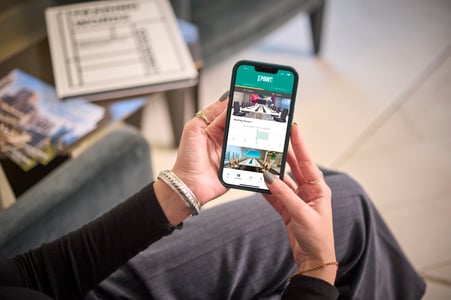How Technology Is The Strategic Catalyst For Hotelification
The UK real estate market has undergone a great shift in recent years - changing consumer expectations, hybrid working patterns, and an increased demand for flexibility in both living and working environments. Read the latest from Locale on how technology has given rise to the concept of hotelification.
So, what is hotelification? It’s the transformation of traditional property assets, particularly residential, office, and mixed-use spaces, into service-rich, amenity-led environments that function with the convenience and experience of a hotel. Technology sits at the core of this transition, acting as both the enabling infrastructure and the differentiating feature that elevates hotelified assets from conventional property offerings.

At its foundation, hotelification leverages digital tools to deliver seamless, hospitality-grade experiences. In the residential and build-to-rent sectors, smart access systems, app-based maintenance requests, and integrated building management platforms simplify operations and create frictionless user journeys. Occupants can book amenities, communicate with management, or unlock their doors through a unified interface, aligning housing with the convenience standards set by boutique hotels. For operators, technology yields operational efficiencies: IoT-enabled energy management reduces waste and costs, predictive analytics flag maintenance issues early, and automation streamlines staffing needs while improving service speed.
Within the UK’s commercial real estate environment, particularly office and flexible workspace, technology enhances the value proposition by enabling spaces that adapt dynamically to demand. Desk-booking systems, occupancy sensors, and data analytics allow operators to optimize layouts, manage peak times, and craft better user experiences. These capabilities are crucial as businesses shift toward hybrid work arrangements, expecting flexible, amenitised spaces that feel more like club lounges than traditional offices. PropTech providers like Locale are already in full swing of integrating with partners like Triggr, Joan, Vantify, SwiftConnect and more to create these digital, responsive environments.

Moreover, technology plays a pivotal role in integrating community and lifestyle. Digital platforms curate events, facilitate resident networking, and provide access to local services, strengthening engagement and cultivating a sense of belonging. These community-building features add intangible value, differentiating hotelified assets in a competitive market where experience is often as important as the physical space itself.
Finally, the alignment of hotelification with sustainability goals further strengthens its relevance in the UK market. Smart building technologies help track energy use, measure carbon output, and support compliance with evolving ESG regulations. This not only appeals to environmentally conscious residents and occupiers but also helps investors future-proof their portfolios.
In sum, technology is not merely a complementary asset to hotelification in UK real estate, it is the essential engine that makes the model viable, scalable, and compelling. By merging data-driven efficiency with elevated user experience, tech-enabled hotelification redefines how properties are operated, monetised, and perceived, marking a significant step forward in the sector’s ongoing transformation.
To find out more, visit locale.co.uk.